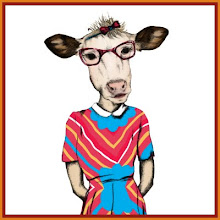Did you know that out of consumers around the world, African consumers are the most concerned about respecting people’s copyrights? They are also the most likely to view copyright infringement as a moral issue. Such are some of the results of a two-year long study conducted by Consumers International and reported on in the book Access to Knowledge for Consumers: Reports of Campaigns and Research 2008-2010.
Consumers International conducted a multi-stage global survey investigating the intersection between copyright law and consumers’ access to knowledge. Overall findings of the survey show that consumers prefer to purchase legitimate copyrighted goods rather than infringing copies. However, this preference requires a perceived higher quality of legitimate goods and an affordable price.
In addition to this global survey, the book also includes reports on national advocacy in six countries, including four African countries: Cameroon, Nigeria, South Africa and Zambia.
Cameroon’s Expensive Texts
Réseau Associatif des Consommateurs de l’Énergie (RACE), a Cameroonian organization, reported on the ever-increasing cost of textbooks in Cameroon. RACE’s goal is to make textbooks available to all students, both in terms of affordability and physical accessibility.
To begin their project, RACE first engaged in 1,000 face to face interviews across the country of Cameroon. This helped them understand the reasons behind the lack of access to textbooks. Yearly changes in required texts, an excessive number of middle men and widespread infringement all contribute to high prices.
For every 5000 books legally manufactured, 30,000 counterfeited books from neighbouring countries are found on the market. The publishing house now increases prices to make up for the losses of unsold books, and counterfeiters take advantage of the increased prices to make more money.
Through campaigning and networking, RACE has been able to institute a pilot not-for-profit book distribution program and has generated discussion in favor of institution government regulations and subsidies that would make textbooks free for primary school students.
Nigeria Battling to Open Education
Consumer Awareness Organisation Nigeria also investigated the lack of access to educational resources. Goals for this project included instigating reform of the Nigerian Copyright Act, removing tariffs and duties on educational resources, and establish and promote open source learning materials in the country.
By pricing books, journals and other educational materials beyond the reach of the potential users (pupils, students, teachers, schools administrators and the wider public) these persons are denied knowledge by the copyright owners.
The group as initiated conversations with the public, both in standard and pidgin English, to discover the most common barriers to accessing knowledge. It has also identified provisions of the Nigerian Copyright Act that should be amended in order to facilitate access to knowledge. Most prominently, the group conducted a large workshop, bringing together different stakeholders to discuss how access to knowledge could be increased.
South Africans Don’t Care to Remember 1978
Run by the African Commons Project and the National Consumer Forum, this project ran under the catchy slogan “What were you doing in 1978?” Reminding South Africans of both the age of their copyright act and how much has changed in the past 32 years.
The campaign was run through the internet, via email, Facebook and an online petition. Unfortunately, the campaign seems to have had a low impact. Less than 20% of recipients opened the email and only 6 people submitted entries for the Facebook competition. The petition for review of the copyright act received a little over a hundred signatures.
The lack of understanding around intellectual property on the local level could have been an inhibiting factor where people did not fully understand what the issues were.
Zambia’s High Tariffs
The Zambian Consumer Association (ZACA) also looked at the familiar issue of expensive, inaccessible textbooks. The goal of this project was to reduce taxes on textbooks, particularly the 20% import tax, with the incorporated goal of raising awareness about the issue. Unions of students from 14 higher education institutions around the country organized activities for meeting these goals.
The students conducted eight live radio phone-in shows and two television interviews to discuss the issues. They also wrote letters to members of parliament urging for the removal of the 20% tariff on textbooks, and enlisted the help of highly respected professor, F M Banda, and popular musician, Petersen.
The entire Access to Knowledge for Consumers: Reports of Campaigns and Research 2008-2010 book is available in for free in pdf format. If you don’t think your internet connection will allow you to view or download the full 336 page text, ask a friend with higher bandwith to save it onto a disc and send it to you. Don’t worry, it’s legal. The book is licensed under a Creative Commons BY-SA license.











1 comments:
Write commentsThere's more about the rest of the book at: http://the1709blog.blogspot.com/2010/11/copyright-law-getting-in-way-of-getting.html
Reply